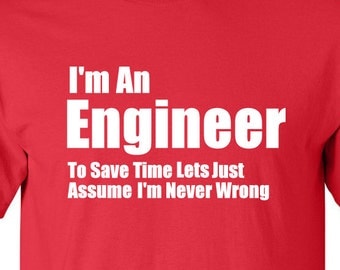| (Source:http://mime.oregonstate.edu/academics/undergrad/ie) |
When people hear about engineering, what do they think about? Most of the time it's usually lots of math along with high salary, which can be true, but it's much more than that. There are many more layers than what meets the eye when it comes to engineering. There are many different types of engineering, but my blogs are focused solely on industrial engineering.
Industrial engineering is the study and practice of designing industrial operations. Many people don't understand the term "industrial engineer", but basically industrial engineers figure out how to make or do things better. They develop processes and systems that improve quality and productivity by working to eliminate waste of time, money, materials, energy and other commodities. Other branches of engineering are very specific when it comes to the work they do, but industrial engineering offers much more flexibility. It’s not just about manufacturing. It also involves service industries, with many IEs working in entertainment industries, shipping and logistics businesses, and health care suppliers. One phrase that gets passed around jokingly is that industrial engineers are a jack of all trades, but masters of none.
IMPORTANCE
So why is industrial engineering so important to today's society? If there were no IEs; businesses would be wasting valuable money and time because their processes are inefficient, there would be a lack of customer service and quality of products, and work would be far less safe for employees.
Here are some examples of how IEs make processes better:
- Make more efficient and more profitable business practices
 |
| (Source:https://img0.etsystatic.com/026/0/9425860/il_340x270.601563602_fjqe.jpg) |
- Better customer service and product quality
- Improve efficiency
- Increase the ability to do more with less
- Make work safer, faster, easier, and more rewarding
- Help companies produce products faster
- Make the world safer through better designed products
- Reduce costs associated with new technologies
WHERE DO THEY WORK
Industrial engineers can work pretty much any setting in the work place. It ranges from finance, to manufacturing, to energy, to health care, to education. Anywhere there is a product being made or a service being performed, you can almost guarantee that an industrial engineer had an involvement in the design of that product or service. Since IEs are so versatile, the demand for IEs has increased dramatically in recent years. The global market is getting more and more competitive these days and the need to improve costs in research, performance and facilities are now a main goal for most companies desiring to earn more while spending less. This reason alone, is why IEs are a hot commodity.
| (Source:http://www.thecb.state.tx.us/images/StandardImage/IE%20Employment.png) |
I found this blog post very informative and interesting. I would agree that most people have a very limited understanding of what engineering really means, and they just associate it with math nerds and good salaries. Your post does a good job of explaining more of what engineering means, and industrial engineering specifically, which is even less well known amongst the general public. It is interesting how wide a range of industries you mentioned employ industrial engineers, as I usually just associate the profession with manufacturing. It is clear from your post the industrial engineers serve a very important purpose, since every company wants to save money and do things more efficiently. I also never thought about how industrial engineers could influence the safety of our world through the design process of products, since I mostly just thought of manufacturing efficiency as the main focus of industrial engineering. Your post made me think of the profession on a global level, and solidified the importance of your profession in my own mind. As you mentioned, the efficiency of producing products is a very big issue in our world, and it is clear that if we want to keep more jobs at home in America, we are going to need to need industrial engineers now, and for the foreseeable future.
ReplyDeleteI can relate to you blog because I am going to school to be a civil engineer and yes we focus on more things then an Industrial Engineer. I think your best like is the joke people pass around when you say, “Industrial Engineers are the jack of all trade, but the masters of none.” I am going for civil engineering and I guess I truly didn’t know much about industrial engineers in that they are more with logistics and money aspect for businesses so they are operating at the highest efficiency. I really like how you stress the importance of your field and you tell us about every aspect it has. Also the format was very well how you use bullet points and headers making it much easier than just a paragraph and sometimes that gets to long to read the whole thing. The global market is getting more and more competitive like you state in your blog and the use of industrial engineers are growing more and more because having such people will help the company save money and efficiency. I really like how you keep the article simple and to the point and is very easy to find the information you are looking for.
ReplyDeleteYour blog is fairly informative about industrial engineers and their responsibilities. I had a friend who was an industrial engineering major, he would always tell me that he was excited for his future job because he got to fire useless people. While humorous, his description of the career was a little unclear. I was able to piece it together from context, but I appreciate your blog giving clear definitions. I think that is an important role for somebody to have, although it would cost money to find inefficiencies, I think that in the long run it would be a good financial decision.
ReplyDelete